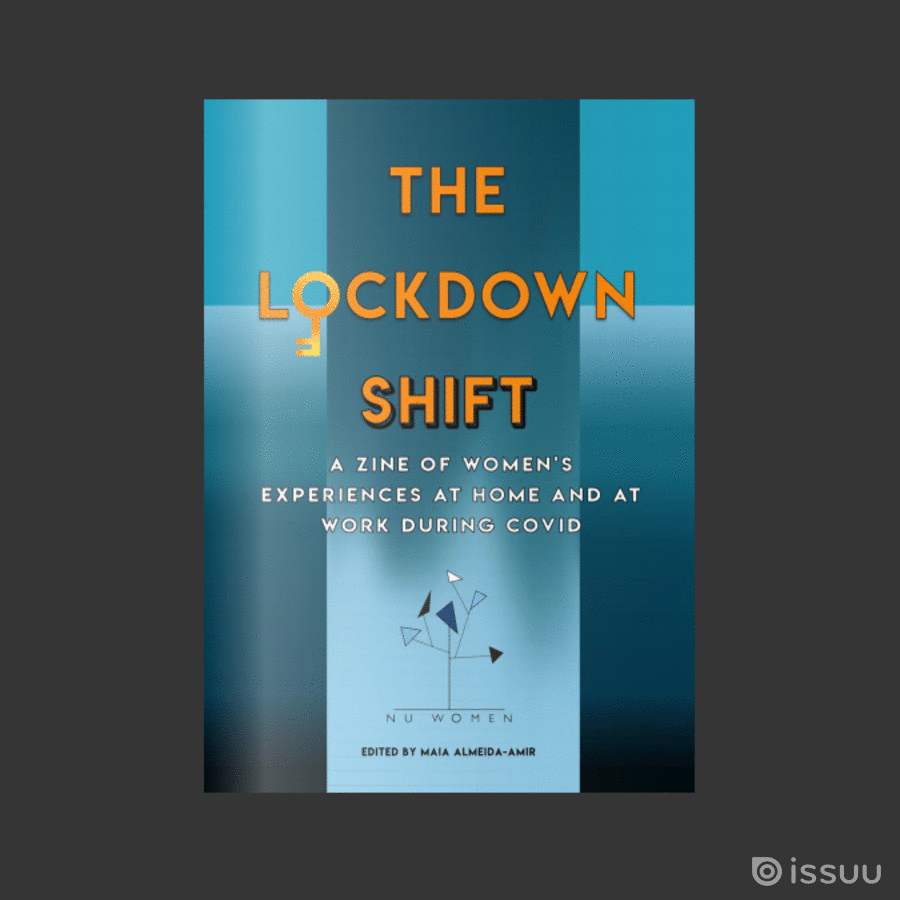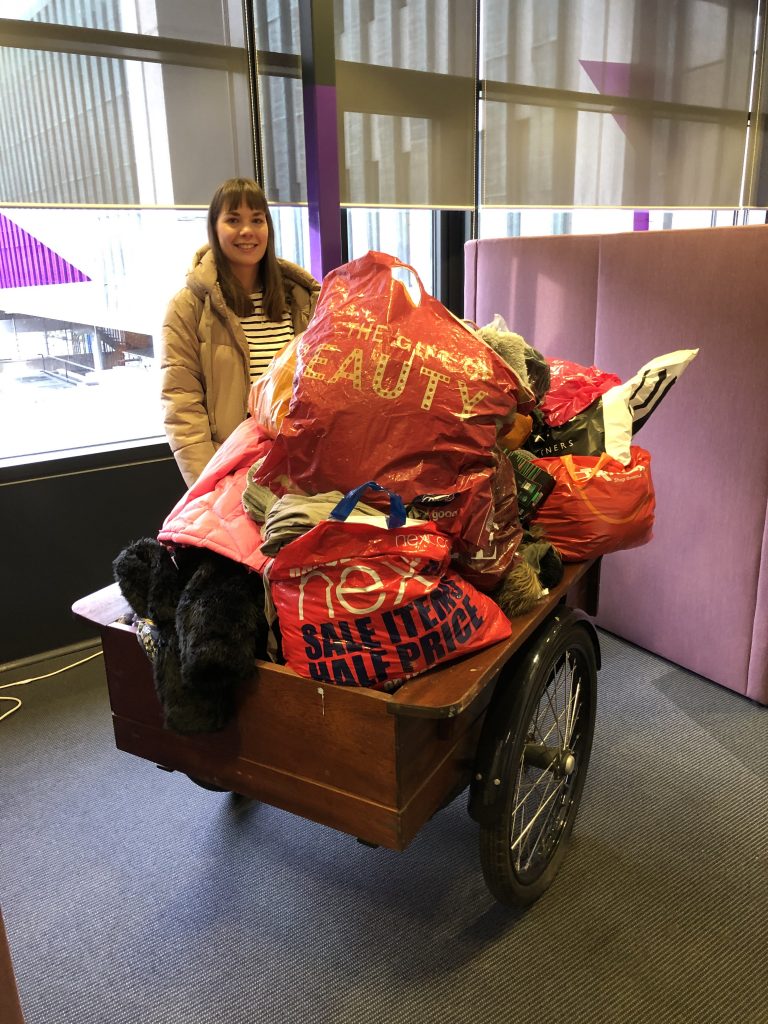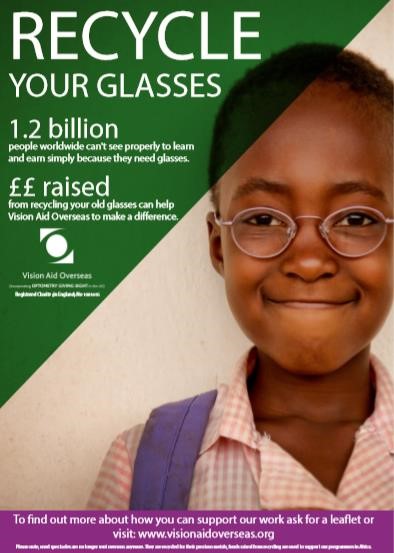This film collects the experiences of several NU Women members working and studying across Newcastle University. In these interviews, female staff and PGRs reflect on their career pathways, their role within the university, the advice they would give to future female staff, their successes and challenges, their development opportunities, support mechanisms, and the impact of Covid-19.
Lights, Camera, Pandemic
Ebb & Flow in Cullercoats: A seed from the NU Women Zine
By Lesley Wood (artist) and Elisa Lopez-Capel (lecturer at Newcastle University)
We are a group of six women sea swimmers who got together in 2020 and have given each other support, encouragement and plenty of laughs ever since. Like other women, we all juggle work and community volunteering with caring for our families through these difficult pandemic times.
Our friendship and the sea swimming have been crucial for our mental health and well-being. When the world shut down around us we were still there for each other down on the beach, in nature, clutching hot drinks, sharing stories, cake and a whole lot of kindness.

We have a lot of fun together but particularly enjoyed making a collective artwork in response to the call from the NU Women Zine The Lockdown Shift. Using a nifty method (waterproof, paper-lined tubes containing chalk pastels, stuffed inside our cossies) we recorded the patterns of our movement in the water, then added words to describe our shared experience of swimming in the sea. From which came the following ‘found poem’:
Brave, connected friendship.
Mother Sea kept me going.
Liberation in lockdown.
Our contribution to the NU Women zine sparked the idea of encouraging other creative people in Cullercoats to showcase their work. Thus Ebb & Flow was born, a community art celebration aiming at raising funds for our local RNLI station. A local venue was agreed, a call went out to local artists and other creative people, their submissions were reviewed, selected, and installed in the café space. After 3 months of hard work and enthusiastic support from pretty well everyone we talked to, two nights of community art were realised and an exhibition catalogue/zine was published (thanks to the Cullercoats Collective).

COVID restrictions were being lifted so, whilst still being careful, we welcomed around 80 people over the two nights. A Grand Opening showcased the work of 12 local artists, featured some excellent sea shanty singing, and an RNLI representative (sweltering in his full kit). On the following evening there was a wonderful performance night with local writers and musicians- the first time since lockdown for most people of either being part of, or performing to, an audience, laughing, singing and clapping together.
Ebb & Flow was a resounding success, coming at just the right time and blessed with glorious weather. As a bonus we raised £440 for our local heroes, the Cullercoats RNLI. It was a fabulous opportunity to share community, creativity, love and respect for nature and our beautiful coastline, celebrating the gifts it gave us through lockdown and telling the stories, the ups and downs of the extraordinary time we have been through together. In these uncertain times, Ebb & Flow was a pleasure to work on (a break from work!), we made something really good happen, which was heart-warming and fun. After such a long time of separation from each other, we experienced a powerful sense of connection and shared joy.
Launching: The Lockdown Shift
NU Women are delighted to announce the launch of our first zine: The Lockdown Shift!
Collected during Women’s History Month 2021, the personal essays, poetry, and art featured here respond to themes of home, work, family, coping, and care. These submissions capture and reflect the many ways that the past year of covid lockdowns has effected women working and studying at Newcastle University.
The decision to create a zine came out of an uncertainty of how NU Women should mark International Women’s History Month this year. During a time when we couldn’t meet as a community and were swamped with the extra practical and emotional labour that comes with being at home, trying to put together a big event was impractical at best. Instead, a zine felt like a fitting response to these restrictions and the atmosphere they brought.
A zine felt like a fitting response to these restrictions and to this atmosphere – as collaborative objects they create space for community across distance and as feminist objects they permit an outlet for the messy, emotive, and confessional. All of these are much needed responses to the events of the past eighteen months.
Over the past week, we’ve distributed copies of The Lockdown Shift to all central and science central campus buildings, so please do take a copy. But if you’re unable to make it to campus, the zine can also be viewed in full here:

With thanks, as always, to our wonderful contributors.
Interning for NU Women
After two years as an intern for NU Women, Caroline Rae reflects on her experience with the Network through an interview with current intern, Maia Almeida-Amir.
Maia: Why did you decide to intern for NU Women?
Caroline: I am really interested in issues of gender equality – as reflected in both my Ph.D. research where I look at representations of the environment through a feminist lens, and in my other job as an editorial assistant for the journal Feminist Theory. Working for NU Women seemed like an opportunity to make a real, lived difference and champion equality, diversity and inclusion in the very place I work and study. And I am so glad I did as it’s been a really good opportunity to see how change can be instigated within the institution and understand the impact a network like NU Women can have for all women working across the university.
Maia: What has been your favourite event during your tenure at NU Women?
Caroline: Reflecting now, I would definitely say the Christmas Social 2019 was one of my favourite events – it was the last in person event we ran before the pandemic and it was lovely to meet and connect with our members in a social setting.
I would add, however, that the events we’ve ran in the last year virtually have been an amazing way of connecting with our members in what has sometimes felt like an incredibly isolating and difficult year. I really enjoyed Emily Yarrow’s discussion of female academics’ experience of research evaluation and Barbara Read’s talk on failure and casualised staff. The topics resonated with me as I’m about to submit my thesis and enter the job market and, while it can be hard to hear about how these issues are impacting women in academia, it has been beneficial to hear about other people’s experiences of casualisation and REF and how female academics are advocating for change through their research.
Maia: What has been your favourite piece of work you’ve done for NU Women?
Caroline: In 2020, not long after lockdown started, I was involved in curating the blog series on living and working in lockdown. The stories we collected gave an insight into how our members were coping with the challenges lockdown brought – whether that was moving home, maternity leave or even just trying to stay connected with colleagues – the stories really resonated with me and so many others and highlighted how NU Women can provide a sense of community and comfort for its members that extends beyond the walls of the institution.
Maia: What do you think you’ll take forward from your time at NU Women?
Caroline: Certainly, that sense of community – we are fortunate to have this network at Newcastle that connects women working in all roles and across all levels. I will definitely continue to act as an ambassador for the network and I’m looking forward to returning to in-person events.
Maia: Finally, what advice would you give to incoming interns?
Caroline: You’re as much a member as you are an intern so think about what you would like to see from the network and advocate for it; if there’s a particular speaker you’d like to invite or a project you’d like to lead on, then go for it! The more suggestions and ideas we have coming from women across the university, the more diverse and inclusive the events and activities the network runs will be!
Dr Barbara Read: Casualised Academic Staff and the threat of ‘failure’: power, legitimacy and (im)permanence
To tie into other events on neoliberal research cultures this year, last week Dr Barbara Read delivered a lecture on feelings of illegitimacy and fear of failure among casualised academic staff.
Where traditionally, lecturers have held high authority and status over their students, as well as a great degree of legitimacy in delivering education, the rise of neoliberalism in University institutions has changed how educators and students are constructed as well as how they relate to each other.
As students are re-constructed into ‘consumers’ and lecturers as ‘service deliverers’ these new embodiments come into conflict with existent ideas of idealised, legitimate lecturers resulting in a great deal of shame for casualised staff, particularly as they seek to validify their self-presentation as academics.
“I sometimes wonder how the students see me – do they think they’ve drawn the short straw by being given a teacher who does not have an office, isn’t around so much, is less confident and experienced and clearly isn’t part of the main faculty?”
Olivia, part-time teaching fellow, aged 41-50, white British middle-class.
Based on email interviews with twenty academic staff members, all on temporary, part-time, and hourly contracts, Dr Read’s research investigates how these staff members navigate their students’ perceptions of them. Of the academics interviewed, most were white and middle class – seventeen were women and all but two were under 40 years old.
Her findings show that many respondents were concerned with how their impermanent status would affect their students’ perceptions of their authority and legitimacy as educators.
“Arriving in academe, I felt ‘displaced’, like an imposter, where everyone appears informed and confident and this feeling has not changed since graduation [with a doctorate]. I feel that my ‘race’, gender, age and accent do not fit with the assumed image of an academic…Some students refuse to accept my feedback comments and/or me as their supervisor.”
Yvonne, part-time hourly paid lecturer, 61+, Black African Caribbean working-class.
Further, their contracts had direct impacts on the quality of their teaching. Several staff members reported feeling unable to deliver or unmotivated to design quality course materials in the knowledge that they might not be present to teach these courses again.
There was also a notable lack of personal and professional development in these roles, as the institution is less willing to invest in training casual academic staff.
Disclosing their casualised status to students felt ‘risky’ to many, although some were more open about it. Particularly, last years’ strike action was cited as an incident that helped some staff members be more open and candid with their students about the precarity of their work. Ultimately, many felt it was a refusal of a culture of shame.
To keep up to date with Dr Read’s research, access her work via https://www.gla.ac.uk/schools/education/staff/barbararead/ or follow @barbararead35 on Twitter.
A full recording of the event is available below:
NU Women Charity Collection 2021
NU Women is pleased to announce that in 2021 we will once again be collecting hats, scarves, mittens and gloves to donate to N.E.S.T. If you have had a Lockdown ‘clear out’ and have found yourself with any of these items spare, then please hold on to them; we will shortly be announcing a central location on campus where these can be dropped off!
In 2019, NU Women amassed over 2500 items of winter clothing to donate to refugees and asylum seekers via N.E.S.T and hope to build on the success of this with our 2021 drive. North East Solidarity and Teaching (N.E.S.T) is a multi-award winning and internationally-recognised student-led project at Newcastle University Students Union. N.E.S.T empowers the refugee and asylum-seeking community in the region through a variety of formats such as one-to-one English teaching, group English classes, sports, creative arts and trips into the local area. Through N.E.S.T, learners (refugees and asylum seekers) gain confidence in their language skills, find new friends and family, and become better integrated into the community. N.E.S.T runs every day, providing up to 13 sessions each week for people of all ages.

This year’s charity collection drive also follows on from the success of our pre-lockdown collection for Vision Aid Overseas, where over 400 pairs of glasses and sunglasses were donated. The donated glasses will be recycled, and the proceeds used to support the fantastic work being conducted in providing brand-new glasses and eye care services overseas. Glasses cases were passed on to charity shops in the local area.

NU Women would like to say thank you to everyone who has shown their support by donating either glasses or winter clothing to each of our charity collections; these drives demonstrate our commitment and our goodwill to supporting local and global issues of equality, diversity and inclusion. We welcome suggestions on future collections!
The Girls Network
Thank you to Stacey Wagstaff, the Girls Network North East Manager, for joining us last week to start off our summer events.
The Girls Network is a national charity, operating in eight regions across the country with a mission to “inspire and empower” girls aged 14-19 by connecting them with hand-picked mentors in a variety of career paths.
The mentoring programme is designed to respond to the systemic social and educational failings for teenaged girls, particularly those coming from poorer homes.
To illustrate the difficulties faced by teenaged girls today, Stacey shared with us a video of girls sharing their concerns.
As shown in the video, the pressures from social media, bullying, body image, pornography, and exams are immense. This is compounded by educational difficulties and worries about the future: at sixteen 50% of girls from the poorest houses get no GCSE passes; less than 6% make it into higher education; and only 2% reach the most selective universities.
As Stacey explained, many of these girls had high aspirations, but didn’t believe they could actually achieve them.
You can’t be what you can’t see.
Here is where the mentorship programme is designed to intervene.
The programme connects women from a variety of professional and life-experience backgrounds with girls for a series of one-to-one mentoring sessions delivered over the course of a year.
The aim is to be an ally for teenage girls, offering them experience, confidence building, support networks, and a space to think about their future.
Beyond this, the Girls Network offers workshops and work experience placements, and the girls who participate have lifelong access to their Ambassador programme, providing them with long-term support.
The programme clearly has a big impact on mentees. Of the over one thousand girls mentored each year 96% reported improvements in their confidence, and 98% said they felt more positive about their future.
If you’re interested in becoming a mentor for the Girls Network, please apply at https://www.thegirlsnetwork.org.uk/become-a-mentor
There’s online training sessions coming up over the summer months, with mentor-mentee matchmaking events in the next school year. Participating in the programme requires a commitment of 2-3 hours a month.
If you want to get involved by fundraising, offering work experience placements, or delivering workshops – get in touch by emailing stacey@thegirlsnetwork.org.uk
Professor Muzlifah Haniffa: The celebration: diversity, unconscious bias and research culture
Just a week before International Women’s Day, Professor Muzlifa Haniffa kickstarted NU Women’s March event season with her talk titled The celebration: diversity, unconscious bias and research culture.
Nicola Curtin, who chaired the event, listed Professor Haniffa’s many accolades as a clinician scientist; Fellow of the Academy of Medical Sciences, The Foulkes Academy of Medical Sciences medal winner, ACTERIA prize in immunology and allergology from the European Federation of Immunological Societies. At Newcastle University, she is a Welcome Trust Senior Research Fellow and Lister Institute Research Fellow as well as a consultant and clinician Dermatologist.
Alongside mapping her journey towards success in medical research, Professor Haniffa’s talk detailed raising awareness about diversity in such cultures, explaining her own experiences and how this may apply to a wider context. Professor Haniffa aimed to dismantle the ways diversity is often talked about, namely in the context of equality.
Defining diversity as an equal representation and opportunity for all groups, Professor Haniffa believed we shouldn’t stop here because there is more to the conceptual framework. Stopping here raises the question: Does diversity compromise quality if you don’t select the best?
Professor Haniffa explained that it was in her writing an article for Nature Medicine that she highlighted how that people who have been taught in the same way will always approach things in a singular fashion. Unfortunately, this is an inevitable consequence of specialisation and she personally felt that if you really want innovation in research, you need collaboration, equality and diversity. Pausing here, Professor Haniffa stated:
“I am not an anomaly, I was unpromising ten years ago and there are many more people like me”
To illustrate why diversity is positive and not just about making everyone equal, Professor Haniffa introduced an analogy in The Loudest Duck (2009) by Lauren Liswood:
“The loudest duck in China gets shot but the noisiest weasel in the U.S gets the grub”
In other words: you need to know the context and culture around you in order to gain a full perspective. Coupling Liswood’s ideas with Matthew Syed’s Rebel Ideas (2019), Professor Haniffa encouraged us to imagine a triangle as a research problem or idea space. What you want are individuals who occupy different areas of that triangle so you have a diverse group of people with a necessary skill set, creating an intelligent team to take things forward and innovate.
Conversely, if you have narrow selection process, hiring intelligent individuals but of the same backgrounds you get a team of clones occupying a small space. It is through this homogeneous way of thinking and narrow scope of operations that a team may not perceive threats, provide alternate solutions, and miss important information within the idea space.
Diversity is not just about skill set but respective of gender, age, culture and a different set of perspectives and experiences. With this understanding, diversity matters and it enhances quality. In her career, Professor Haniffa believed it was important for her to have mentors who were successful women, had a different mentor style, different leadership style, and were from all walks of life.
However, she explained that there are many barriers that can influence diverse representations, such as the lack of role models and stubborn structures or dialogues that exist within marginalised or under-represented groups. In addition, research selection criteria can be too narrow and a lack of opportunity is often mistaken for lack of ability.
Referencing her own experience, Professor Haniffa explained issues surrounding sponsorship, conflict of interests and evidencing sponsorship or mentorship throughout her career. One may ask why Professor Haniffa did not raise issues of diversity and unconscious bias sooner, but she explained that she did – intersectionality and panel dynamics silenced her questioning. By Professor Haniffa raising awareness of diversity issues within her research culture, she has in the past, been forwarded to psychological assessment rather than her boundaries being recognised.
As a result of such treatment, Professor Haniffa now raises awareness, promotes positive solutions and nurtures diverse talents in Newcastle and elsewhere in the UK and she believes she is not the first nor last.
For more of Professor Haniffa’s work, Please See:
https://www.ncl.ac.uk/chabi/people/profile/mahaniffa.html#background
A Full recording of the event is available below:
Emily Yarrow: An unequal opportunity? Female academics’ experiences of research evaluation in the UK
It was an absolute pleasure to welcome Dr Emily Yarrow to conclude NU Women’s February events.
Emily’s talk was anchored in previous PhD research which looked at women’s lived experiences of REF2014, bringing these endemic issues forward to the present day. Emily talked us through the impact of gender and women’s inclusion in impact case studies regarding gender more broadly in relation to the study.
Coming from a corporate governance background, Emily used a theoretical model which explored the relationship between governance, gender and the wider higher education context. In turn, she argued that informality and the subversion of formal practices, processes and elements of governance, such as the REF, serves as a real catalyst for inequality. Dr Emily Yarrow’s analytical framework was not only qualitative study that was built around one touring case study, but a progressive one.
In this sense, the study subverted existing notions, and explored how female research evaluation affects female academics’ careers. Moreover, the study investigated female academics’ perceptions of research evaluation and its career effects, whether this is gendered, and how this plays out in female academics’ career trajectories.
Dr Emily Yarrow shared her key findings from this research, firstly stating that the REF contributes to the maintenance of a regime of gendered inequality, primarily because of the ways it is implemented and its implicit reliance on informal networks, such as recruiting panel members within the university and REF submission readers.
“The importance of networks is argued further increased for recruitment and selection, if an individual was not included however, overall ‘the hustle’ still matters immensely”
(Yarrow, 2020)
Extending these findings, Dr Emily Yarrow found that research evaluation contributes to an increasingly individualised way of working. Further, it is modelled on idealised notions of the unencumbered worker because of it ineffectively accounts for time taken out of a REF cycle, which disproportionately affects women.
From this, we learned that the REF functions as a control mechanism over the work that is produced. For example, in some disciplines, such as Law and Business, certain types of conservative research are becoming more valued due to the level of risk associated with submissions.
“I no longer aim for lower ranked journals; I just can’t afford to do that! So I no longer consider certain journals that otherwise I would love to publish in”
(Lecturer, participant 35)
By the end of the talk, Dr Emily Yarrow demonstrated a lack of transparency in the processes surrounding the REF, with particular emphasis on recruitment, the selection of material evaluators, and final submissions. These appear to act against gender equality in the experience of the REF process at the individual level.
Moreover, the REF’s orientation towards time meant that care and parental leave had a significant gendered impact on academics’ careers. As a result, although research evaluation has the potential to be used as a career path clarification tool, it imports gendered measurement issues that contribute to precarity. Emily paused on this to add that the creation of a quasi-marketplace further drives the need for the ‘right type of publications’, and, in turn, precarious working.
Overall, REF frameworks contribute to furthering the notion that the unencumbered (disproportionately male) scholar is ideal, which continues to entrench gendered marginalisation within academics’ careers.
Further reference material for the presentation can be found here:
To Keep up with Dr Yarrow’s work, see:
https://emilyyarrow.co.uk/
https://twitter.com/EmilyYarrow1
